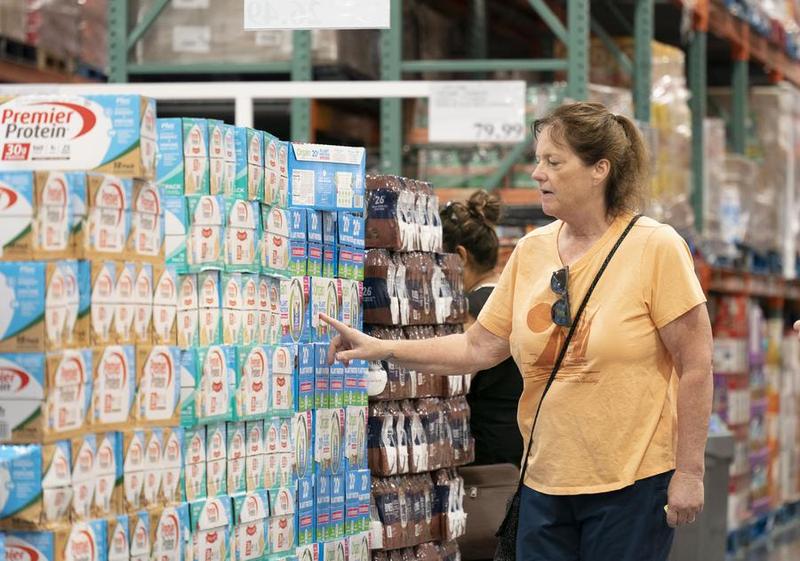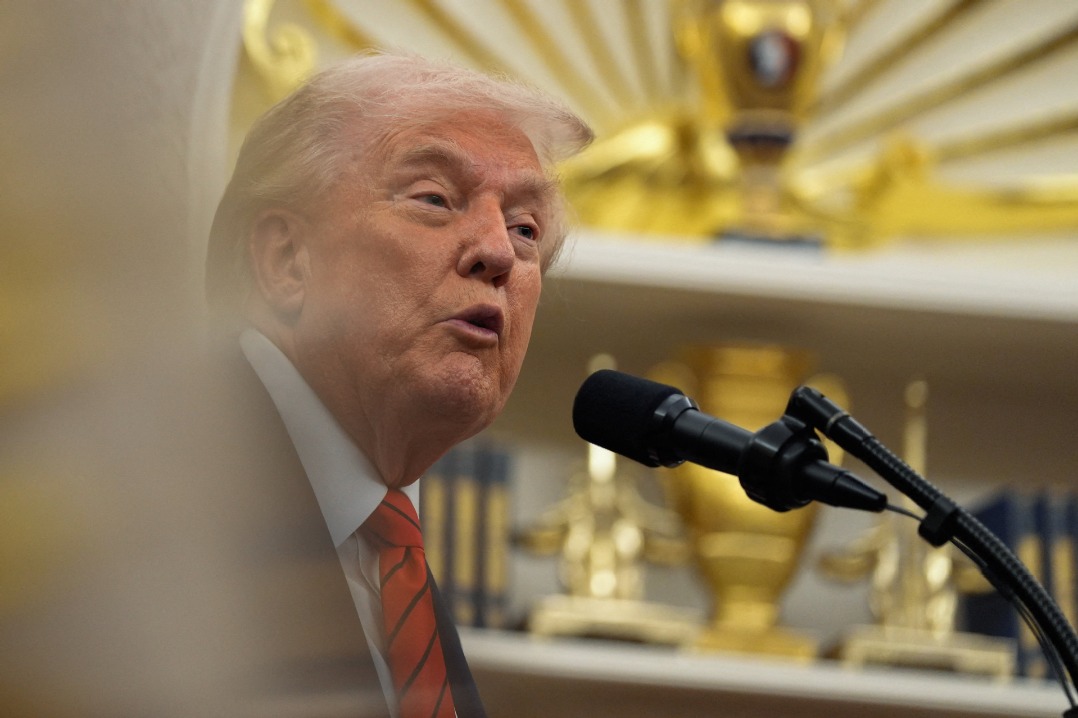Inflation vexes US consumers


A growing number of middle-class Americans say they are finding it challenging to cope with inflation. The price increases have led them to cut spending in order to afford food, gas and groceries.
"My grocery bill went from $150 for two weeks of grocery shopping to $250," Claire, 34, of New York, who declined to give her surname, told China Daily. "It's awful. It's absolutely enough.
"I think everybody who has the power to fix it is benefiting from it. So, they're making us think they're trying to fix it, but they're not," she said. "I won't be affected by tariffs because I try and shop local as much as possible."
Inflation jumped to 3 percent in January and is picking up again. The Consumer Price Index (CPI) rose 0.5 percent last month, the biggest gain since August 2023 on goods and services, up from 0.4 in December, according to the Bureau of Labor Statistics (BLS).
For many shoppers, groceries are now among their biggest expenses, as the cost of meat, poultry and fish has soared. Some are paying $8.99 or more for a dozen eggs amid an avian flu outbreak, when the average price was $4.15 in December, according to the BLS.
Lucy, 36, from New York, who declined to give her surname, is a mother of two who works full time and gets her groceries delivered.
"I was horrified at my Whole Foods bill the other day," she said. "I have another child now, so that probably affects it. It's definitely getting higher. I can feel it.
"I feel like people who voted for [President Donald Trump] have made their bed and will soon find out how bad it's going to get. They're going to see."
As a candidate, Trump vowed to "bring prices down starting on day one" of his administration. But a month into his tenure they are still high.
Food prices climbed 0.4 percent, and grocery store prices rose 0.5 percent, CPI data showed. Prices will likely remain high, as wholesale food prices are elevated.
"BIDEN INFLATION UP!" Trump posted on Truth Social after the January inflation figures came out, blaming his predecessor, Democrat Joe Biden. Trump took office on Jan 20.
The reason for the persistent inflation and high cost of goods is varied, say analysts. Some businesses may have "preemptively raised prices in anticipation of higher and broad tariffs on imported goods", Reuters reported.
Trump's current tariffs include 10 percent on all Chinese goods and across-the-board-tariffs on steel and aluminum. While his proposed 25 percent tariffs on goods from Mexico and Canada was put on hold on Feb 3, they are scheduled to take effect in March, he confirmed.
Mexico sent 63 percent of its vegetable exports to the United States, and 47 percent of its fruit and nut exports, according to US Department of Agriculture data.
"The high prices in stores and in general are almost burdensome," said Arnold Pri, 55, a financial adviser from Brooklyn, New York. "I think a lot of families are experiencing hardship due to the high price of eggs, high price of gas. They have to do something. It's just whether this administration can fix it.
"I'm coping. But you know, you're pulling back on discretionary spending. I graduated with a bachelor's in economics, so I understand the impact of tariffs, and that it is inflationary. I think that [the government] believes that the benefit of the revenue that they receive will offset it. And I'm not quite sure that's going to be the case."
US Vice-President J.D. Vance urged consumers to be patient, telling CBS News that "Rome wasn't built in a day," adding that "consumers are going to see lower prices at the pump and at the grocery store, but it's going to take a little bit of time".
A reduction in prices can't come soon enough for Duke Stewart, 45, from Brooklyn, New York, who said that the cost of food is "crazy right now."
"Everything is going up, especially food," Stewart said. "I used to spend more money on clothes and things like that, but now I spend more on food. I want the prices to come down. Not sure what they can do."
The Conference Board's Consumer Confidence Index for February released Tuesday fell to 98.3 — the largest monthly decline since August 2021.
The University of Michigan's February survey showed consumer sentiment declined in February, down 10 percent from January.
The president's overall plan to tackle inflation involves cutting taxes, weeding out waste with the Department of Government Efficiency, or DOGE, and increasing oil-drilling leases.
"I think that the idea that they can provide tax cuts means they're not thinking about the impact that will have," Pri said. "We have to find that money in order to pay off our debt, so they want to increase the debt and give the rich tax breaks.
"I'm in the finance business, and I look at this on a daily basis, and what's on the surface is not what's below," he said. "We are headed into some very tough times, and people are walking around not understanding that."

































